The winner of the first GameDev-hackathon DataArt was a team from Kiev
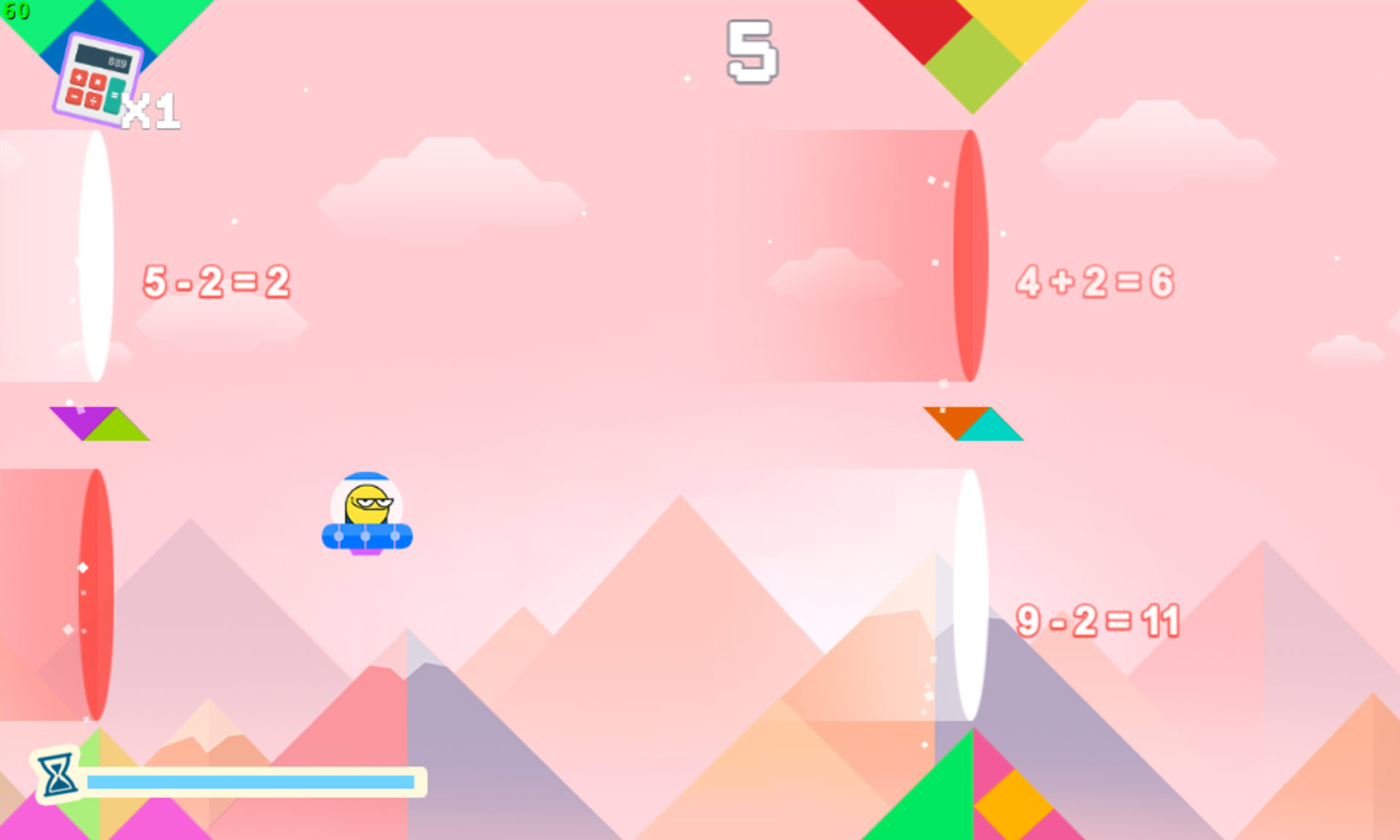
48 hours, nine teams representing separate DataArt development centers or distributed between cities created their own HTML5 games.
“It all started with the idea of Max Knyazev, our front-end developer, who wrote edu.coordination on our newsletter,” said Alexander Dudin, hackathon coordinator. “He proposed an internal hackathon for the entire DataArt.”
According to Maxim himself, he initially thought of the hackathon as a way to remind colleagues of important internal and R&D projects, where often there are not enough people with special skills: “I proposed to collect those who are currently not fully loaded, and to train in such a pleasant format their necessary skills and give them acceleration. But the colleagues who picked up the idea immediately found support from our iGaming practice, and the hackathon decided to reorient to games. ”
iGaming practice appeared not so long ago and is now actively developing. Therefore, for her the opportunity to meet people who are interested in games and are in different locations turned out to be especially interesting. Initially, the organizers hoped to gather about 30 participants, but the response exceeded expectations - 60 people registered for participation, and more than 40 went through the hackathon from start to finish. “I think the role played was that the prize was ultimately chosen cool. DataArt provided Oculus Rift virtual reality goggles for the authors of the best game, ”Dudin said.
Alexey Pchelintsev, game designer and business analyst of iGaming practice, explains that the main goal of the hackathon was to introduce colleagues to iGaming practice: “It seems to me that from this point of view, the goal has been achieved. Several dozens of people participated in the hackathon, even more people voted for the team - I think almost everyone as a result knows that we performed the hackathon. And I think that we can try to hook some of the hackathon participants into future projects. ”
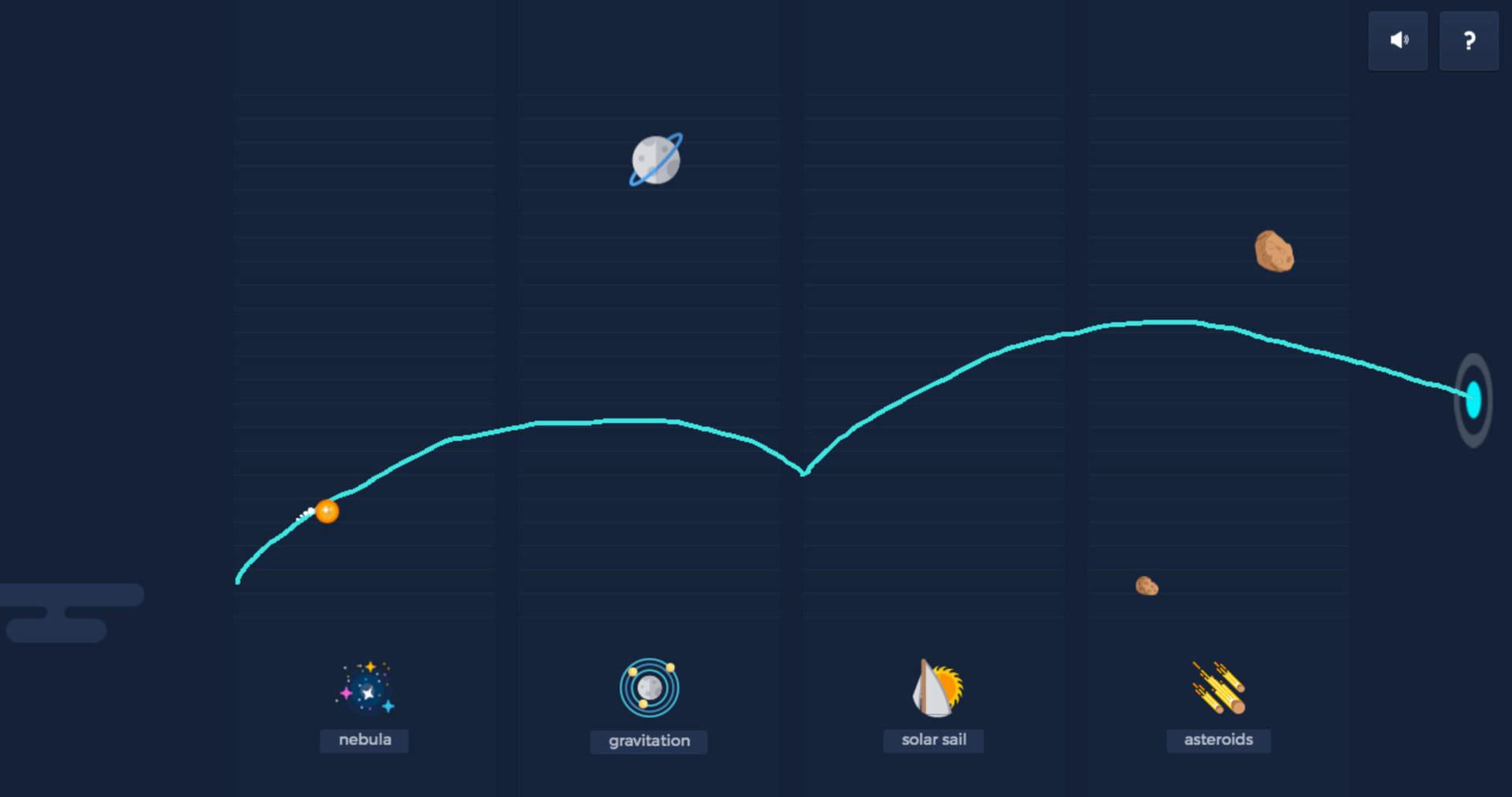
The game Bouncy, created by a distributed team from Kharkov and St. Petersburg, according to viewers, best embodied the idea of a parallel universe.
Tasks and conditions
The restrictions for the teams were minimal: on Saturday and Sunday they had to create an HTML5 game using only their own developments and open sources. The participants were recommended two libraries, the most convenient from the experience of iGaming-practice, but access to them was not a prerequisite. The size of the teams this time was not regulated and ranged from one to 15 people. They could gather in conference rooms, stay in their usual places or work from home - different teams approached the organization of the creative process in different ways.
“I could not immediately find people who know exactly how to make a hackathon distributed between cities from start to finish,” says Alexander Dudin. - Therefore, we needed to agree on each item of the regulation, of which there were a lot. And is it worth it to announce a topic for future games, we did not immediately decide. ”
As a result, the topic was nevertheless chosen - “Parallel universes”, and for its best disclosure a special nomination was established. Separately, they noted for the most successful use of the symbol important for DataArt - tangram, the best graphics, sound and gameplay. In addition to the jury, the best game could be chosen by the audience - however, the results of their voting coincided with the opinion of experts. The winner was both recognized by the Kiev team with the game Fly & Math.
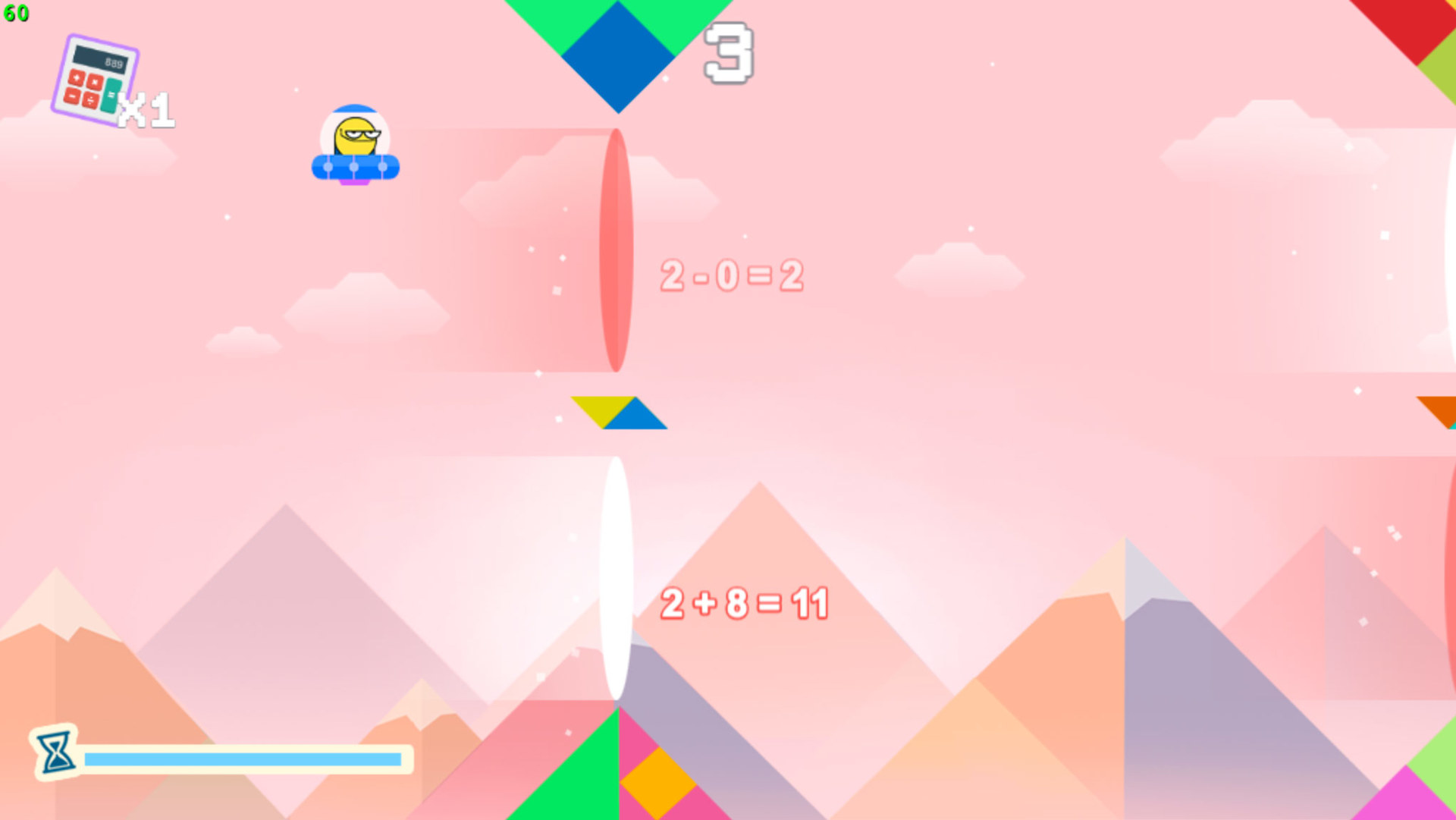
Fly & Math combines elements of the classic flappy bird and a math game.
Games and winners
Senior Game Developer DataArt Sergei Chernykh admitted that he was a little upset when he was included in the jury because he wanted to participate in the hackathon: “In principle, I love tasks that need to be solved in a limited time. But to judge was also interesting, although not easy - we developed the evaluation criteria and a full list of nominations in the process and were largely guided by subjective feelings. I think the next time we will prescribe them more clearly and we will be able to expound in detail to the participants before the hackathon begins. The guys are really great! They showed enthusiasm and professionalism. There were some bugs and shortcomings, but if a game made in two days can be played with pleasure for at least half an hour - a great success! I liked the games. ”
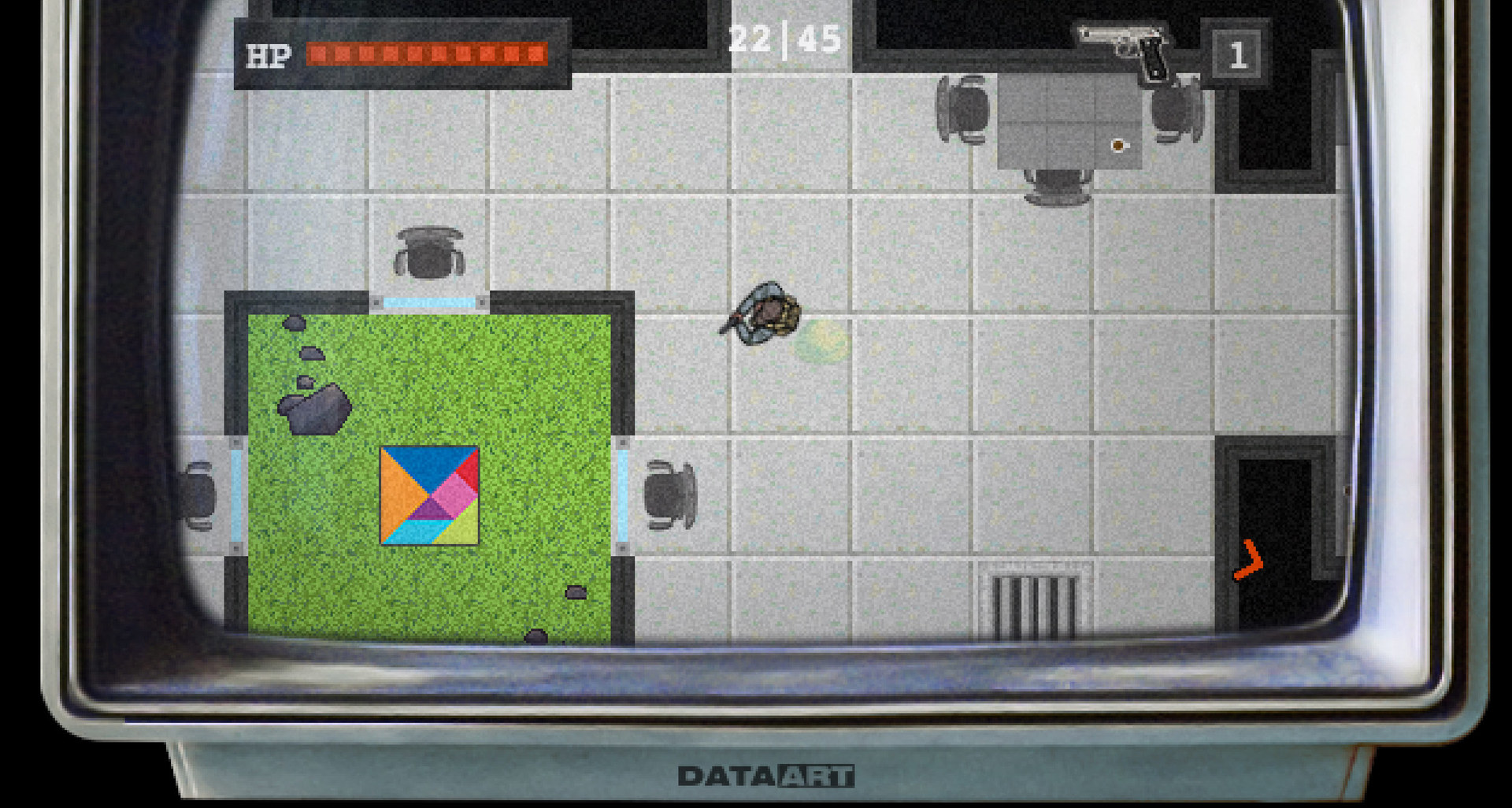
The gameplay of the shooting of the St. Petersburg team Bloody Balalaika, the audience appreciated the most.
And the jury, and the audience, and the participants themselves noted that many of the games really turned out fascinating. This is especially surprising, given that in most teams there was not a single person with GameDev experience. However, this does not apply to the Kievans who won the hackathon. “Probably, from the very beginning they could be called favorites,” says Sergey Chernykh. “These are my colleagues, very talented and professional guys who have been playing games for a long time.”
The Kiev team consisted of programmer Igor Vlasenko and artist Anton Goncharov, not one of them had participated in hackathons before. At the same time, Igor clarifies that, in principle, he is not a fan of competitions and contests, and in general, the motivation for the team was the love of games and the desire to work in the indie genre.
Igor Vlasenko spoke about the process of preparing for the hackathon: “We could discuss ideas quite often - we are sitting opposite each other, and the closer the time approached the hackathon, the more often we asked each other:“ Well, did you come up with something? ”. Of course, I had some ideas and preparations on game mechanics before, since I work in this direction. But, in fact, the main thing is to hook the player. For example, I thought about the tower defense option, but in the end we decided to simplify our game as much as possible. And settled on a combination of flappy bird and a mathematical game. ”
The concept and mechanics were a little drawn to a given topic, on the basis of which Anton came up with a setting: the main character flies in a parallel dimension, where he constantly solves simple arithmetic examples. The wrong answer instantly opens him a portal to the universe, where he turns out to be a vegetable. An additional motivation for players is a pre-set record of 129 points, which is not easy to beat.
The winners agree that the results achieved by their rivals are impressive. “For people who haven’t been involved in games, doing it in a short time is cool! - says Anton Goncharov. - The only thing would be good if all the teams had an artist, since he plays a big role in the preparation of the concept and in the game design. For those who work at GameDev, platformers already seem a little bored - I want something new and fresh, bold and unexpected - to take, for example, and do something like a monopoly. Sometimes it is better to lose in mechanics and physics, winning at the expense of the idea itself. If a game of three dice and one circle brings pleasure - this is the best game! ”
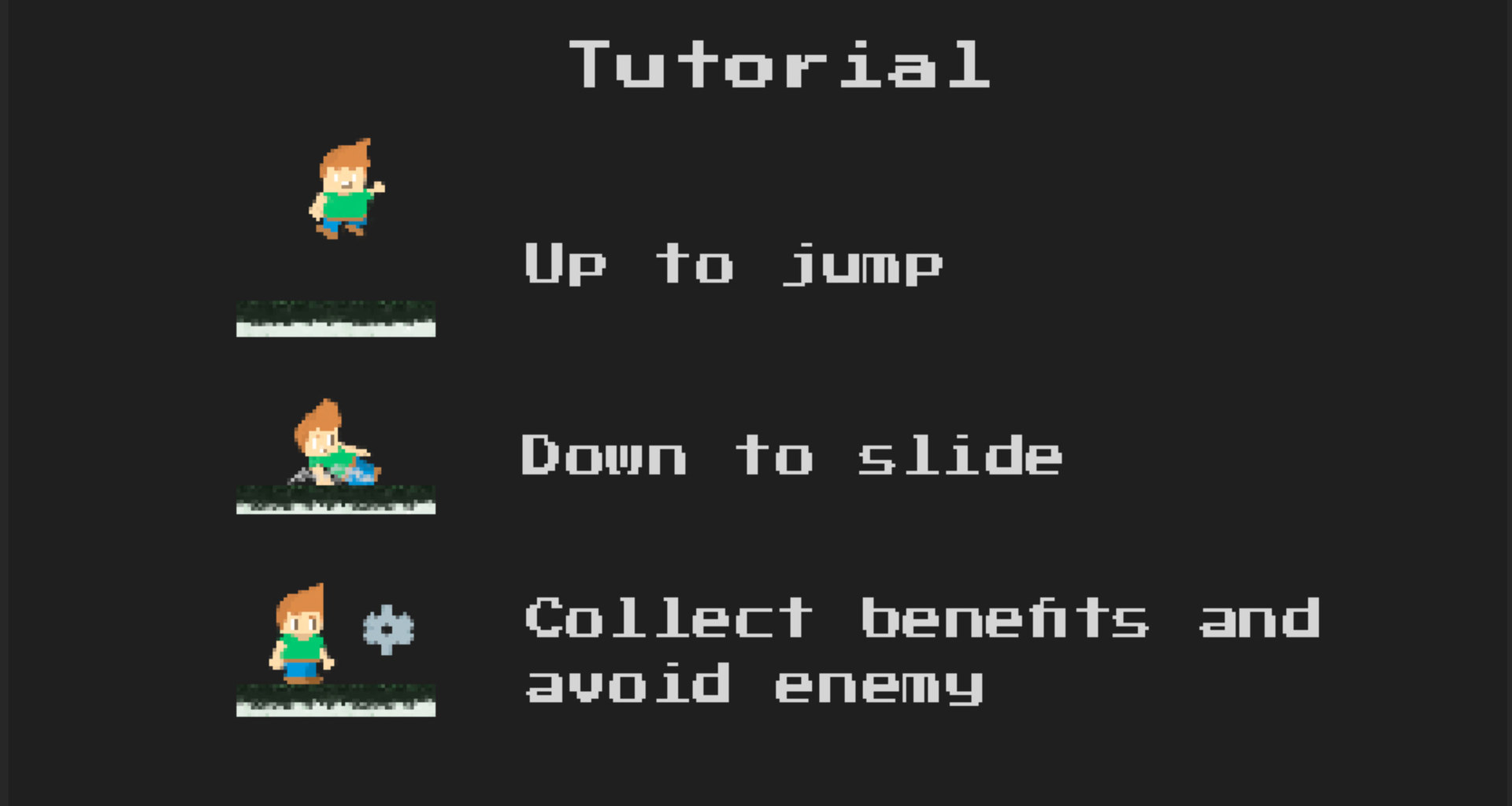
The team from Odessa won a prize in the nomination for the best sound effects.
The hackathon winners especially liked the games made by the team from Odessa, and the distributed teams of St. Petersburg and Kharkov and St. Petersburg and Kherson. And for their Fly & Math, they do not exclude a commercial perspective. “We have many options for its further development,” says Igor Vlasenko. - All sorts of new rounds, achievements, bonuses. Someone wrote that this game is ideal for teaching children how to count. I thought that you can use it to learn basic English words. In general, we are ready to finalize the game, fix the bugs that remained hidden from the eyes of users, and put them in the form of a finished product. ”
Aleksey Pchelintsev emphasizes that in iGaming practice they are satisfied with the hackathon, although some participants focused on the program part much more than on the GameDev component: “But everyone had interesting ideas, and even games that were processed by existing clones showed a good level of playability . For the first time, this is very good. In the future, you need to think about how to equip teams with people and tools in order to make even more interesting products. But we have not yet set a goal to make games that can be immediately sent to the AppStore or GooglePlay. On a hackathon scale, everything turned out great! ”
